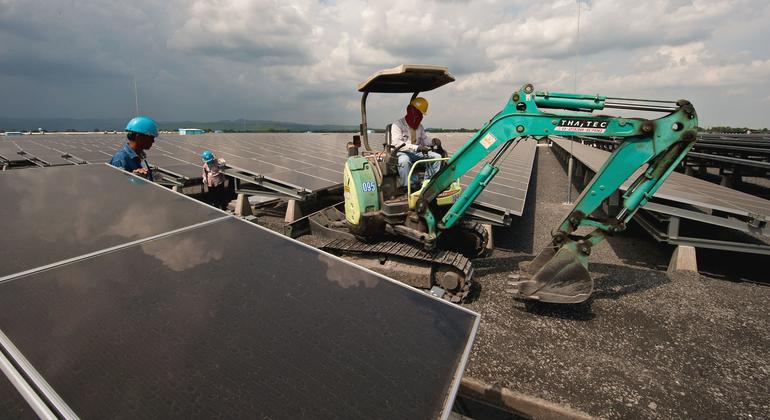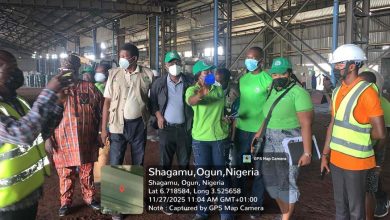Developing countries face a $4 trillion investment gap in the SDGs

According to a new UNCTAD report, developing countries face a $4 trillion gap in sustainable development investments.
UNCTAD Secretary-General Rebeca Grynspan said a “significant increase” in instrumental support for renewable energy in developing countries is “vital” for the world to reach its 2030 climate goals.
Poor countries left behind
When investing in renewables you have almost triple since the adoption of the Paris Agreement eight years ago, poor countries have been largely left behind.
Ms Grynspan said more than 30 developing countries had not registered a single international investment in renewable energy generation since the landmark climate change agreement was agreed in 2015.
According to UNCTAD, the amount of foreign direct investment in clean energy attracted by developing countries in 2022 stands at $544 billion – well below needs.
A decline in SDG funding
Some good news from the report is that energy companies among the top 100 countries have been increasingly turning towards renewal and consuming fossil fuel assets at a rate of about $15 billion per year.
However, the report also reveals the pace of overall increase in investment in renewable energy in 2022, “as global project finance transactions decline”.
In developing countries, the biggest gaps in the Sustainable Development Goal (SDGs) – related investments are in energy, water and transport infrastructure, UNCTAD said.
Challenges to foreign direct investment
Foreign direct investment (FDI) is also on the decline, according to UNCTAD, as global flows fell by 22 per cent in 2022, to $1.3 trillion. In LDCs, most of which are in Africa, FDI inflows dropped by about 16 percent.
The UNCTAD report says “cross-cutting conflicts” are causing the decline: the war in Ukraine, high food and energy prices and debt pressures.
With these factors still in play during 2023, the agency said it expects “downward pressure on global FDI” to continue this year.
New ‘compact’ for investment
The report calls for a series of policies and financing mechanisms to be in place to help developing countries attract the necessary investments.
UNCTAD emphasizes the importance of debt relief for developing economies, to provide them with the financial space needed for clean energy financing and to help lower country risk costs, a prerequisite for attracting private investment.
The agency also recommends reducing the cost of capital for clean investment through partnerships between international investors, the public sector and multi-financial institutions – a measure that can reduce the spread on borrowing costs for projects energy investment in developing countries by 40 percent. .
‘The only show in town’
Mrs. Grynspan emphasized that investment plays a “huge part” in achieving the SDGs.
He said they were “too big to fail”, calling them “the only game in town” which required collective action and international solidarity.







